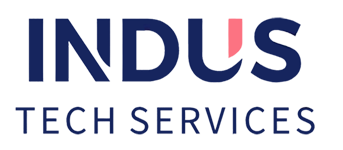The DP-700T00-A: Microsoft Fabric Data Engineer course is a comprehensive 4-day program designed to equip data professionals with practical skills to implement and manage modern analytics solutions using Microsoft Fabric — Microsoft’s all-in-one analytics platform that integrates data engineering, data science, real-time analytics, and business intelligence.
Learners will gain hands-on experience in building Lakehouses, creating and running Notebooks, orchestrating Data Pipelines, and transforming data with Dataflows Gen2. This course emphasizes practical implementation, enabling participants to manage data end-to-end — from ingestion to visualization — all within Microsoft Fabric.
- Understand the Microsoft Fabric architecture and its core components
- Build and manage Lakehouses using OneLake
- Ingest and transform data using Dataflows, Notebooks, and Pipelines
- Analyze data using Spark and collaborate using Power BI
- Implement data security, monitoring, and performance optimization in Fabric
This course is ideal for:
- Data Engineers building scalable data workflows
- BI Developers expanding into end-to-end data solutions
- Data Architects evaluating Microsoft Fabric for enterprise analytics
✅ Foundational Knowledge:
- Basic understanding of core data concepts (e.g., tables, columns, relationships)
- Familiarity with data modeling and ETL (Extract, Transform, Load) processes
- Basic knowledge of relational databases and data warehouses
✅ Experience with Microsoft Tools (Recommended):
- Exposure to Microsoft Power BI and its basic functionalities (building reports, using Power Query)
- Some experience using Azure Data Services (e.g., Azure Synapse, Azure Data Factory) is helpful but not mandatory
✅ Technical Comfort:
- Ability to navigate cloud platforms and understand data storage principles
- Experience working with data using scripting languages (such as T-SQL, Python, or Spark) is a plus, but not mandatory
- Lesson: Explore end-to-end analytics with Microsoft Fabric
- Lesson: Get started with lakehouses in Microsoft Fabric
- Lesson: Use Apache Spark in Microsoft Fabric
- Lesson: Work with Delta Lake tables in Microsoft Fabric
- Lesson: Ingest data with Dataflow Gen2 in Microsoft Fabric
- Lab: Create and ingest data with a Microsoft Fabric lakehouse
- Lab: Analyze data with Apache Spark
- Lab: Use delta tables in Apache Spark
- Lab: Create and use a Dataflow Gen2 in Microsoft Fabric
- Lesson: Orchestrate processes and data movement with Microsoft Fabric
- Lesson: Organize a lakehouse with medallion architecture
- Lesson: Get started with Real-Time Intelligence in Microsoft Fabric
- Lesson: Use Real-Time Eventstreams in Microsoft Fabric
- Lesson: Work with real-time data in a Microsoft Fabric eventhouse
- Lab: Ingest data with a pipeline
- Lab: Organize your Fabric lakehouse using a medallion architecture
- Lab: Explore Real-Time Intelligence in Fabric
- Lab: Ingest real-time data with Eventstreams in Microsoft Fabric
- Lab: Work with data in a Microsoft Fabric eventhouse
- Lesson: Get started with data warehouses in Microsoft Fabric
- Lesson: Load data into a Microsoft Fabric data warehouse
- Lesson: Monitor a Microsoft Fabric data warehouse
- Lesson: Secure a Microsoft Fabric data warehouse
- Lab: Analyze data in a data warehouse
- Lab: Load data into a data warehouse in Microsoft Fabric
- Lab: Monitor a data warehouse in Microsoft Fabric
- Lab: Secure a warehouse in Microsoft Fabric
- Lesson: Implement continuous integration and continuous delivery (CI/CD)
- Lesson: Monitor activities in Microsoft Fabric
- Lesson: Secure data access in Microsoft Fabric
- Lesson: Administer Microsoft Fabric
- Lab: Implement deployment pipelines in Microsoft Fabric
- Lab: Monitor Fabric activity in the Monitor hub
- Lab: Secure data access in Microsoft Fabric
Microsoft Fabric is an all-in-one analytics platform that unifies data engineering, data science, real-time analytics, and business intelligence. Unlike traditional siloed tools, Fabric brings together services like OneLake, Dataflows, Pipelines, Notebooks, and Power BI under one integrated environment, enabling end-to-end data workflows in the cloud.
No. While familiarity with Power BI is helpful, the course is designed for data engineers and professionals who may or may not have deep experience with Power BI. The course includes modules that cover Power BI integration within the Fabric environment.
You’ll learn how to build and manage Lakehouses, ingest and transform data using Dataflows and Pipelines, analyze data using Notebooks and Spark, implement governance and security, and visualize results using Power BI — all within Microsoft Fabric.
This course is ideal for professionals with foundational knowledge of data concepts and some hands-on experience with data tools. It’s not for absolute beginners but is accessible to those transitioning from BI or analytics roles into data engineering.
Yes. This course aligns with the upcoming Microsoft Certified: Fabric Analytics Engineer Associate certification (DP-700 exam). While the official exam may still be in beta or development, the course covers key concepts and skills relevant to that certification path.



